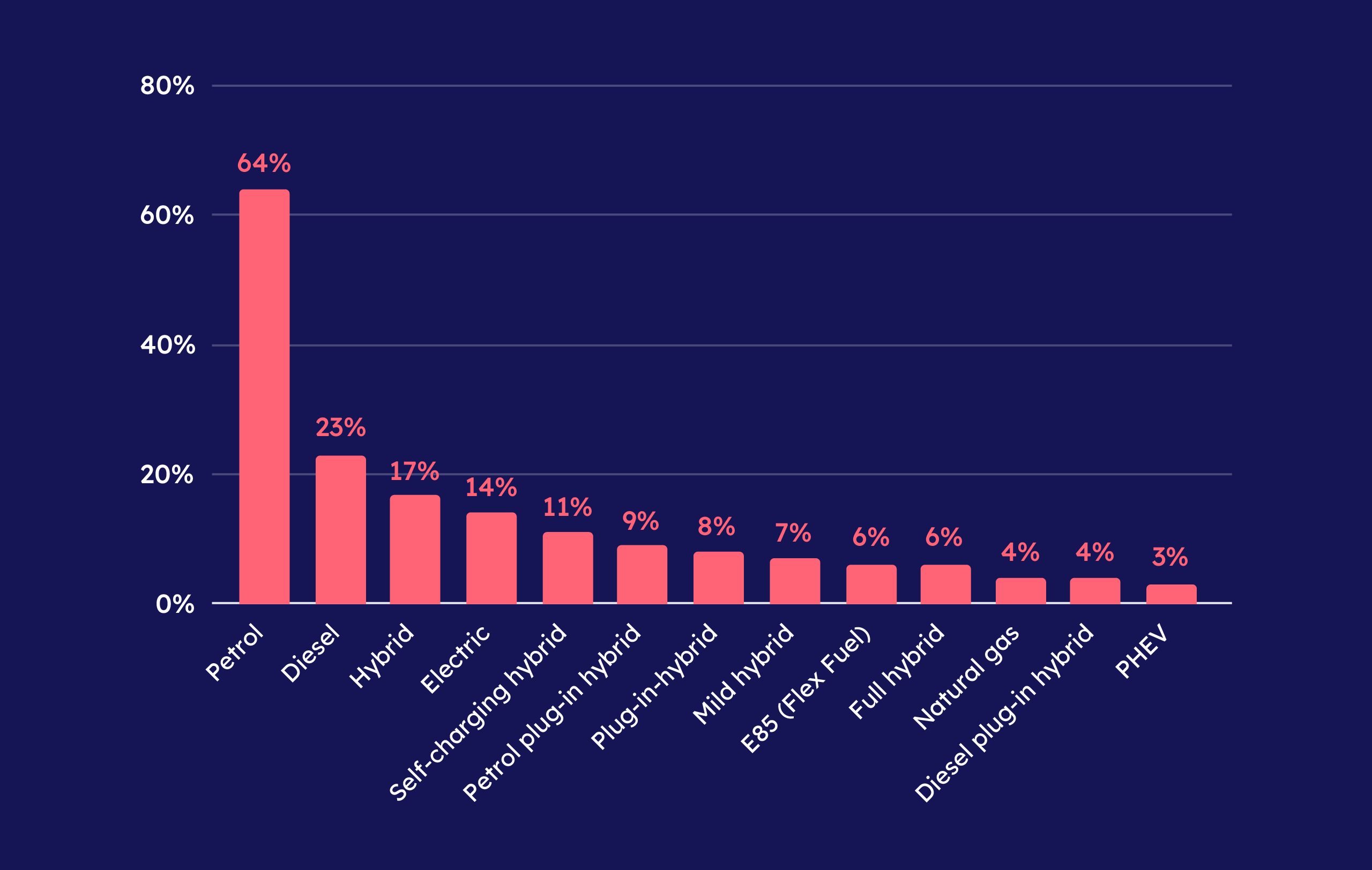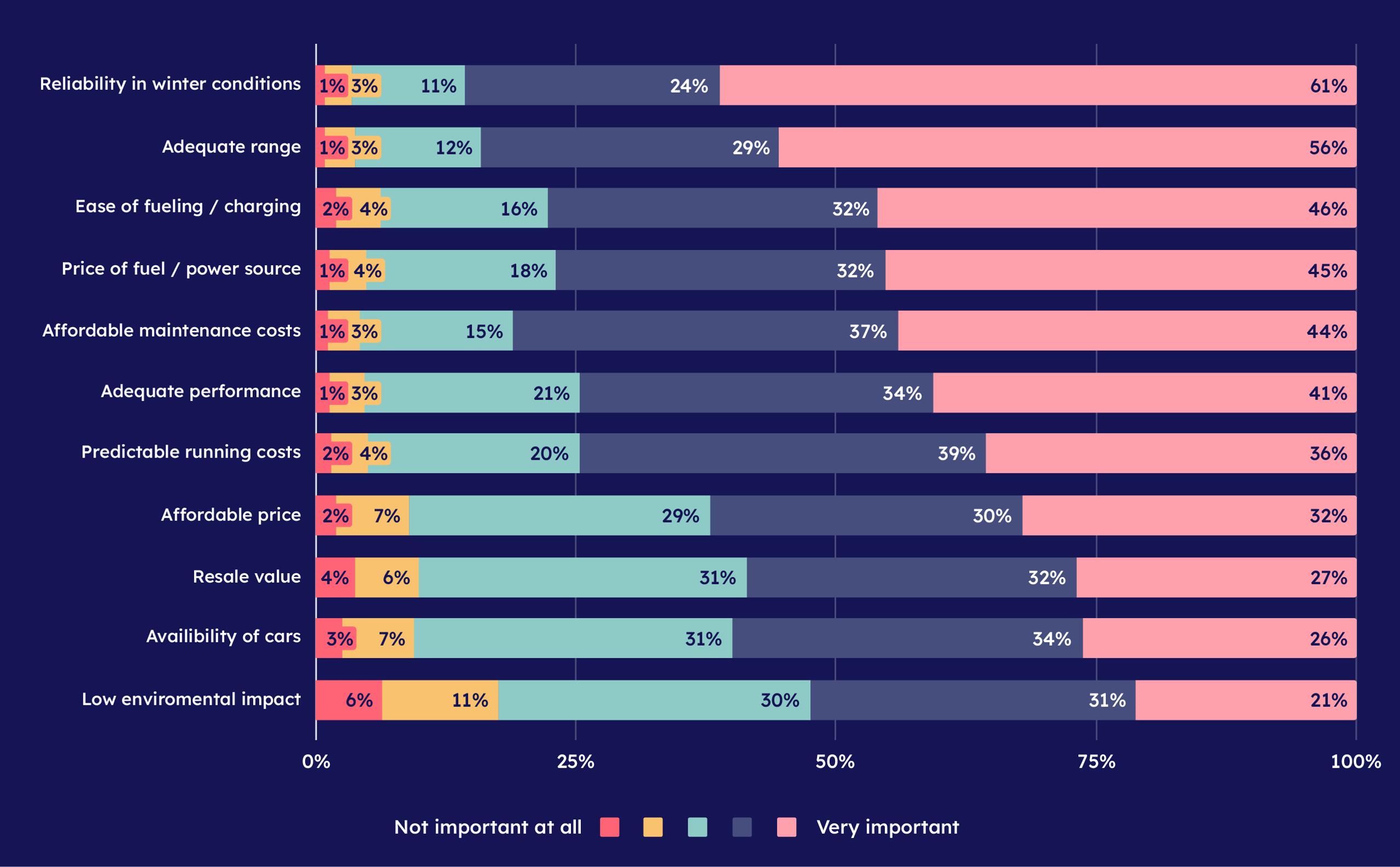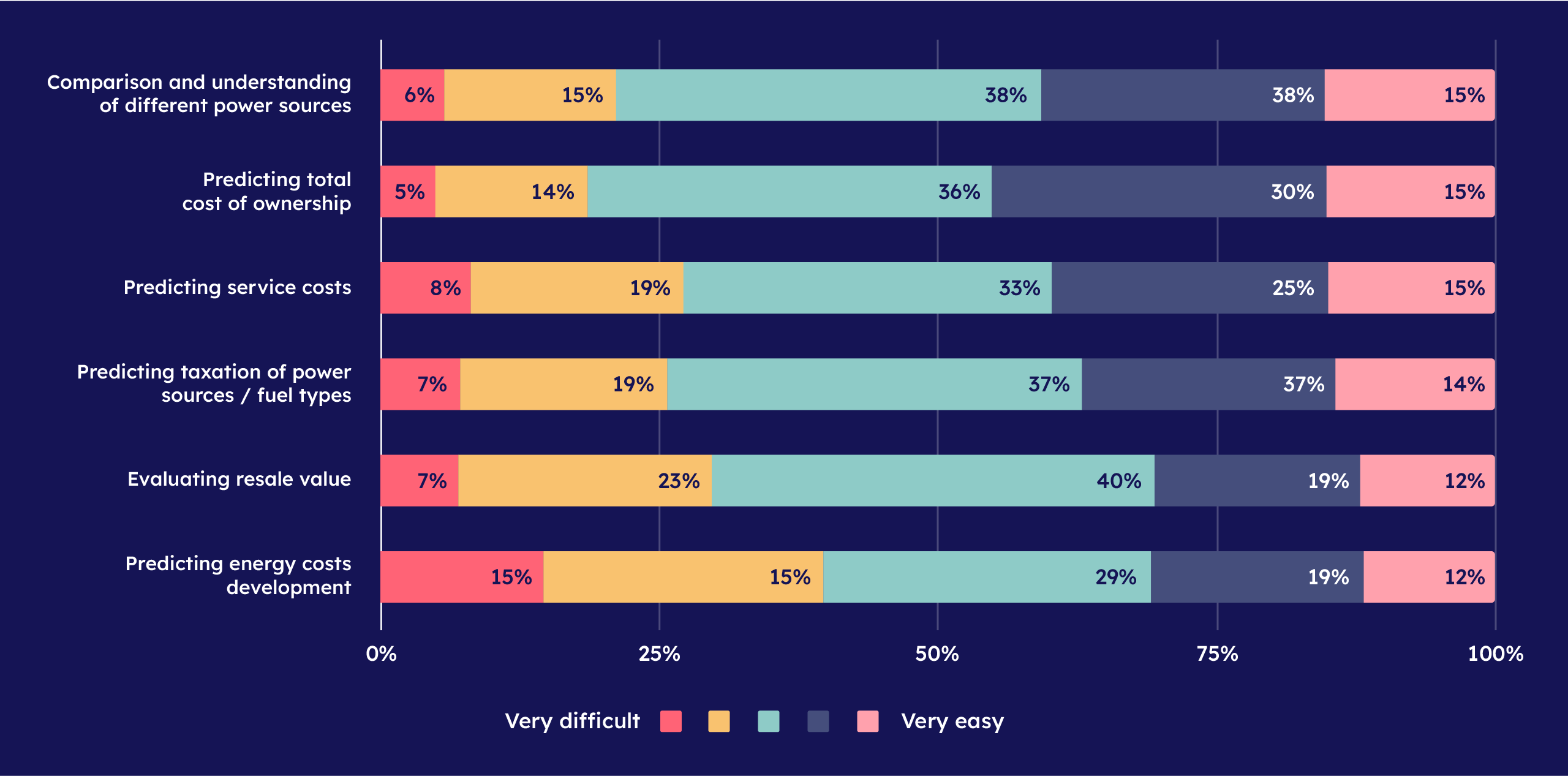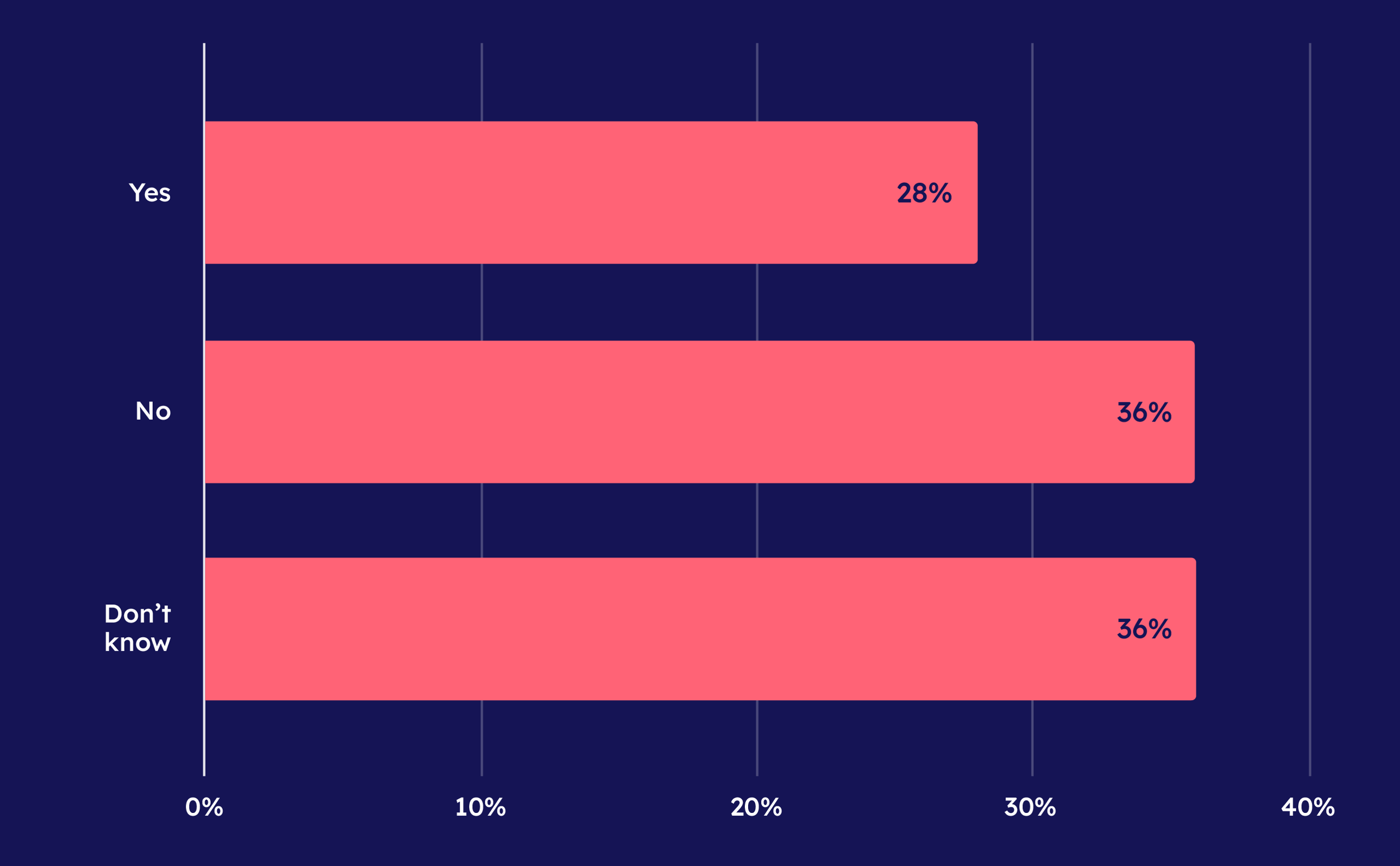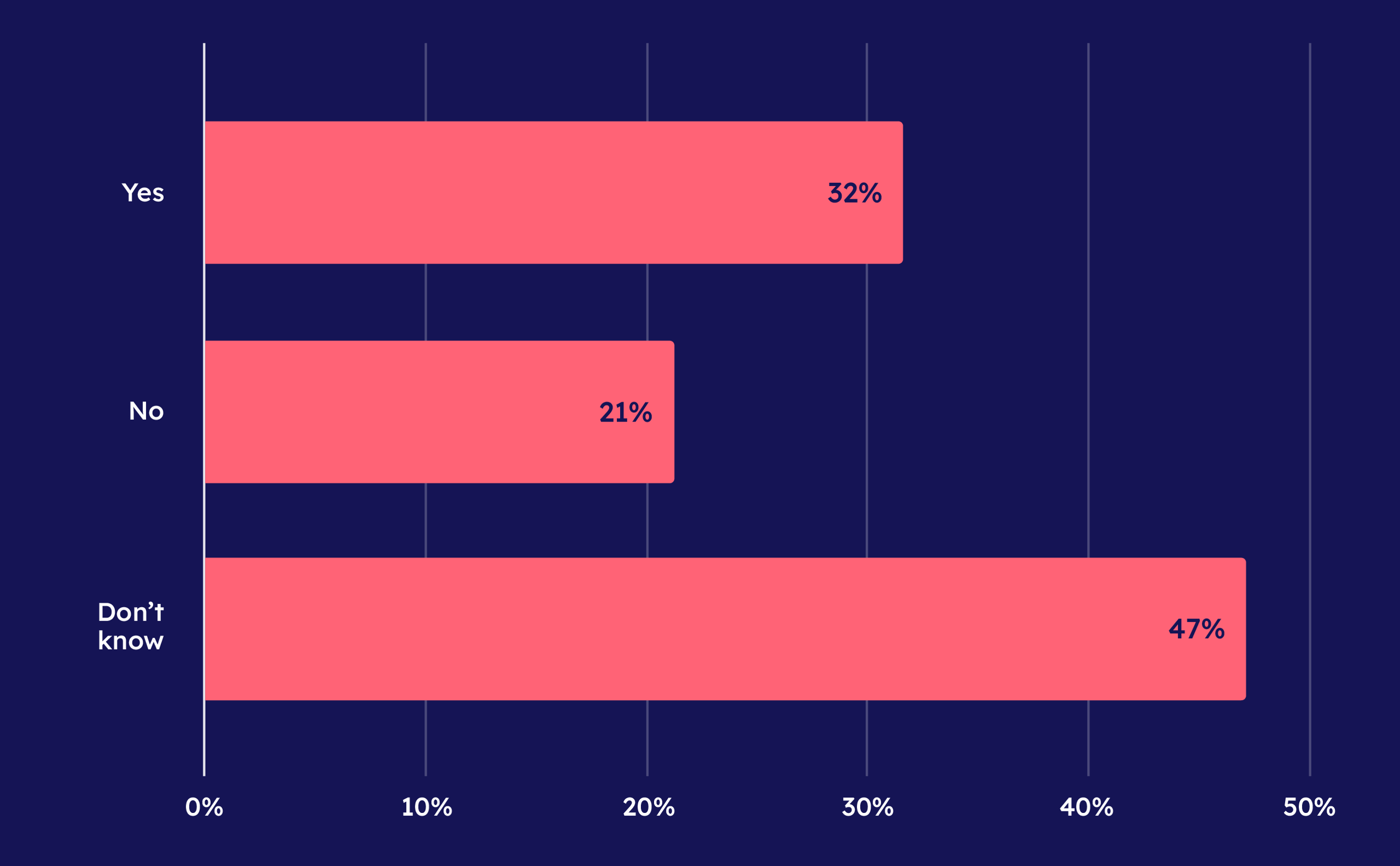The car market is becoming electrified. In the selection of new cars, more and more of them are partially or completely electric, and the same trend is starting to occur in used cars as well.
For the consumer, buying a car is less often a walk in the park. It is an expensive, rarely repeated investment, in which mental images sit stubbornly and information is obtained from the media and advertising. Manufacturers and traders use terms for power source, some of which refer to the same technology and some to a completely different thing.
From the point of view of the car trade, the danger is that the uncertainty related to the power sources becomes an obstacle to the purchase, when the customer does not sufficiently understand the differences between the products being sold.
The results and findings of the study are based on a consumer panel of 1,001 Finnish respondents conducted in January–February 2023. The target group of the study was a population-representative sample of Finns who are at least 18 years old, and from this sample, consumers who have purchased or considered purchasing a car in the last 6 months were included as respondents.
We asked the research participants how they understand and differentiate between different forms of power sources. At the same time, we found out the importance of power source when choosing a car, as well as which arguments speak in favour of different types of power sources. In addition, we evaluated the uncertainty factors related to operating forces that influence the purchase decision.
The research revealed that especially consumers' knowledge of hybrid power sources is weak, there are a lot of prejudices, and practical reasons and habit guide purchasing behaviour.
Uniform information produced for customer needs only serves some of the customers. With new cars, you can trust that the manufacturer will answer customers' questions.
In the case of used cars, the expertise and responsibility for answering are transferred to the car dealer. This challenges both communication and the expertise of individual sellers.
Everyday needs guide choices
According to the survey, more than 60% of the respondents were primarily looking for a replacement car.
The importance of form of power source in the decision to buy a car is undoubtedly great, as 68% of all respondents considered power source to be important or very important when choosing a car.
Petrol is still the most popular option. 64% of respondents had either considered or purchased a petrol-powered car. 17% were interested in hybrids and 14% in electric cars. Only 4% considered a gas car.
The popularity of petrol can certainly be explained by the fact that it is included in the consideration phase also in situations where the customer ends up buying a hybrid or an electric car. In addition, the main power source of the hybrid is generally petrol and the respondents actually perceive hybrids to be petrol cars.
What is the power source of the car you purchased? If you're just considering getting a car, what drives are you interested in?
The popularity of the different hybrid options was relatively even. Self-charging hybrids and plug-in hybrids topped the list. The terminological jungle related to different types of hybrids already raised its head in these results.
The choice of power source is made on the basis of practicality, environmental friendliness is of little importance
The choice of power source was particularly influenced by practical considerations such as operational reliability in winter conditions, sufficient operating distance and costs related to use. There are many reasons behind the answers.
The survey was timed during the coldest winter season in Finland; additionally, inflation and energy costs force consumers to think about the operating costs of driving.
In the justifications for the choice of power source, environmental friendliness was perhaps surprisingly last on the list – only half of the respondents considered it important or very important.
However, it is clear that green values alone cannot be used to sell electric cars and hybrids.
When choosing the power source of a car, how important do you consider the following factors?
The developing technology of the operating forces and the changes in energy costs reveal the thin knowledge base of the consumer
We also wanted to find out how uncertainties related to power sources affect people's purchasing behaviour.
The evaluation of the costs and depreciation of different types of cars, the understanding of technologies, the changes in taxation and the development of energy costs had similar results across the board.
There was clear uncertainty associated with all the options, but the most difficult thing right now is predicting the development of energy costs.
The results confirm the idea that buying a car in this world situation and technological change is very difficult, and many customers do not have enough information to support their decision.
This, in turn, often leads to postponing purchase decisions.
Charging the car at home was a significant challenge for 51% of the respondents; the corresponding figure for charging at the workplace was 61%. 43% of the respondents were of the opinion that the coverage of the charging network in Finland is not sufficient for their needs.
The answers certainly partly show a lack of knowledge and the prevalent prejudices when there is no personal experience of electric cars, and the widespread electrification of transport still requires a lot of work both in developing the charging infrastructure and in sharing the right information with consumers.
The perception of the affordability of using an electric car also strongly divided opinions – only 37% were clearly of the opinion that using electricity is cheaper than petrol and diesel.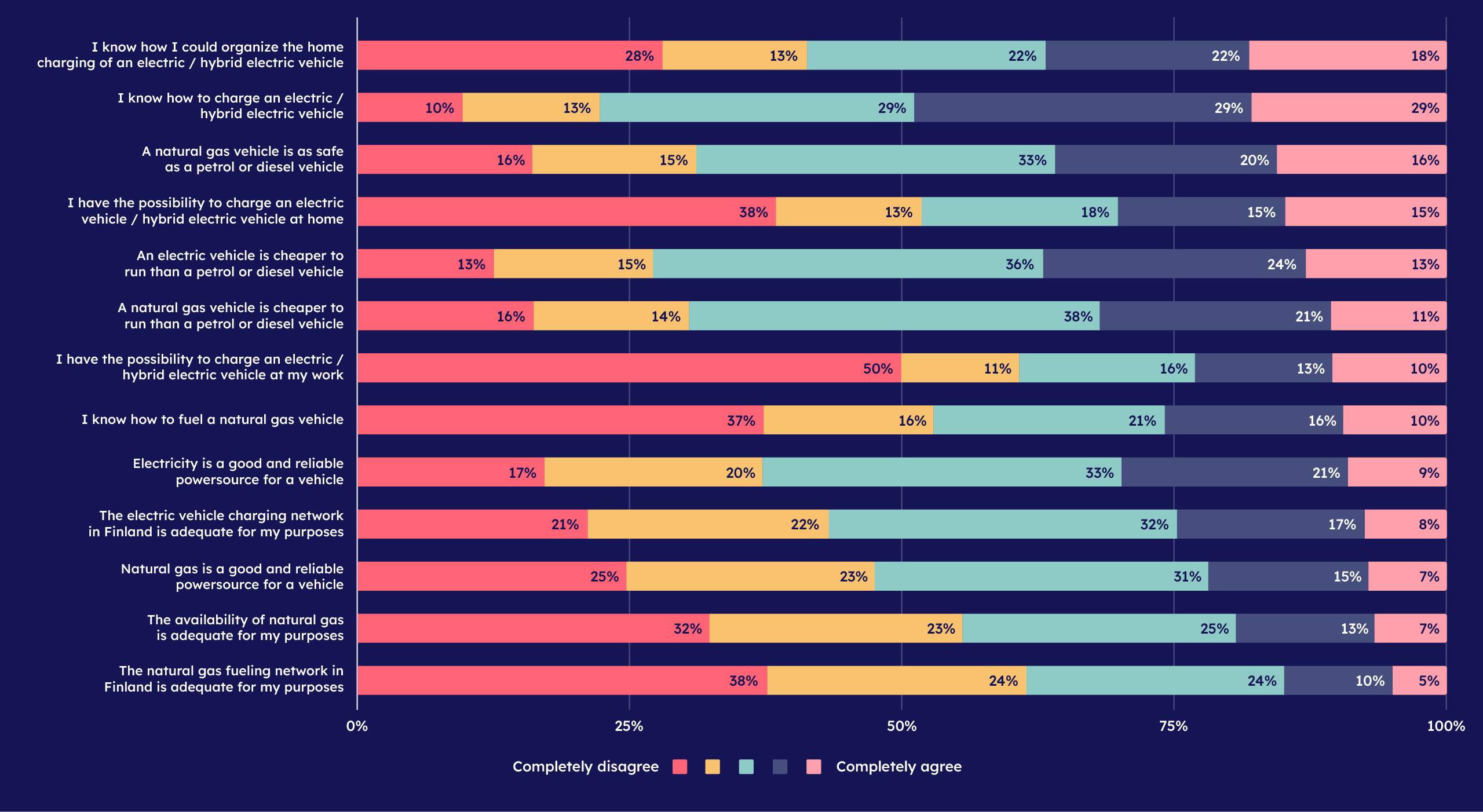
Only half of the respondents knew hybrid as a form of power source
Hybrids cause the most confusion about car fuel types and power sources.
55% of respondents knew the general term "Hybrid" well or very well; "Electric" followed closely with 51%.
However, a closer look at the various hybrid terms immediately began to lower the respondents' self-confidence. The terms PHEV and mild hybrid, mainly cultivated by the manufacturers themselves, were the least well known of the electric hybrids. And the controversial "gas hybrid" term was even less known than this.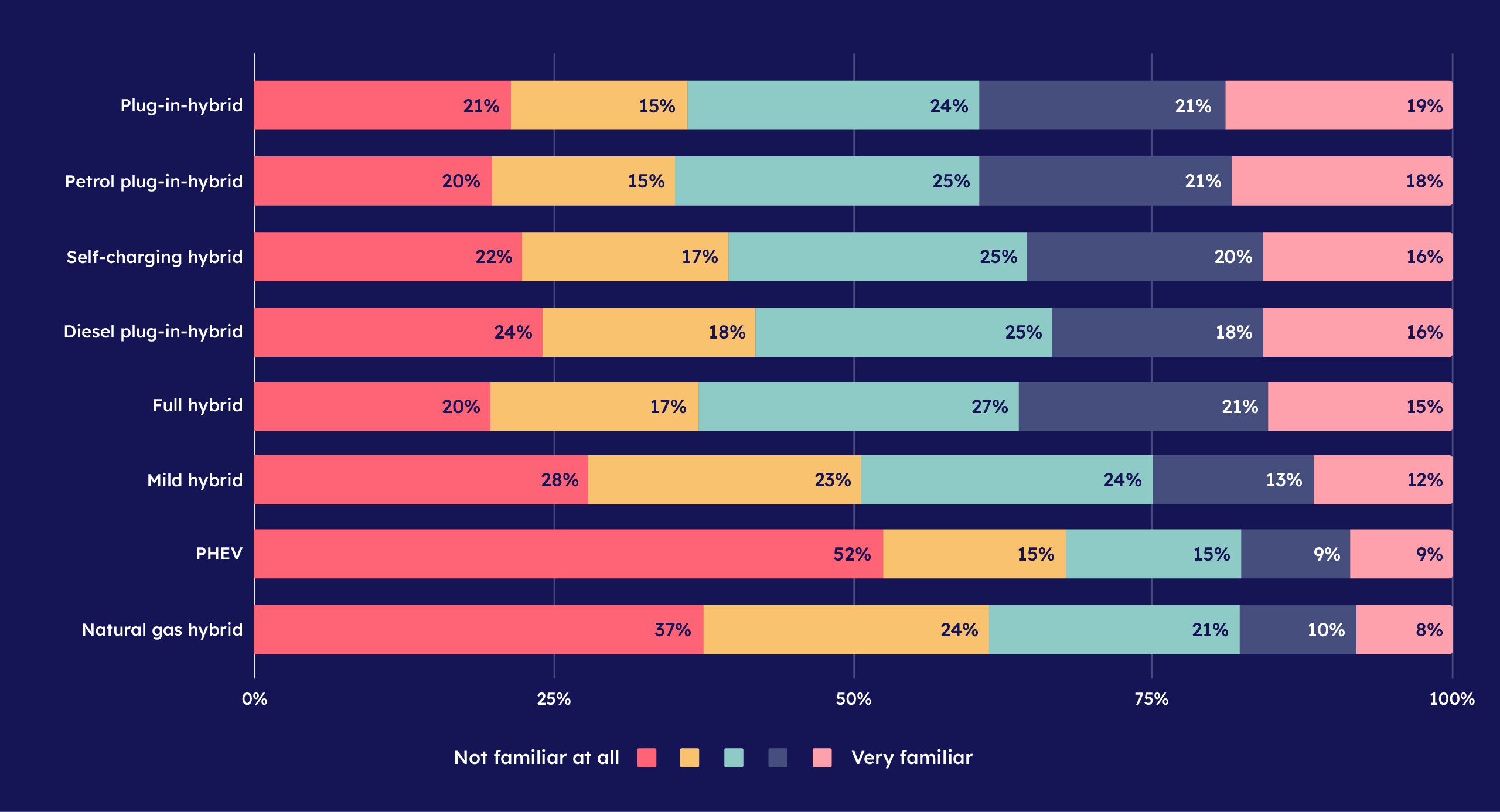
The terminology of hybrid technology is too varied for consumers
Respondents' actual understanding of hybrid technologies was assessed with a series of statements related to the power sources and charging of different types of hybrids.
When asked, for example: "What do you think can act as the fuel of a hybrid car?", the clearly dominant perception was a combination of petrol and electricity.
However, when we asked the same thing about the power sources of plug-in hybrids, the results spoke volumes. 31% of the respondents chose the option "I don't know". In addition, 19% of the respondents offered gas as an alternative, even though the combination of electricity and gas is in practice not sold by the manufacturers.
The understanding of which hybrids can be charged from the socket was equally tentative.
32% of respondents said that a mild hybrid can be charged from a socket, and 28% had the same misconception about a self-charging hybrid. In both questions, the number of "I don't know" answers was even higher than this.
Although 69% of the respondents knew that a plug-in hybrid can be charged from a socket, 27% answered "I don't know" here as well.
Can a self-charging hybrid get electricity from a socket?
Can a plug-in hybrid get electricity from a socket?
Can a mild hybrid get electricity from a socket?
More expertise for sellers – fewer barriers to purchase
Petrol is still a popular option for both new and used cars, but the interest in hybrids and electric cars is significant.
Environmental reasons. In the sale of electric and hybrid cars, in addition to green values, attention must also be paid to overturning partly unfounded prejudices and emphasising the ease of everyday life.
Opening the hybrid terminology. Customers' knowledge, especially regarding hybrid drives, is currently weak. In the case of new cars, dealers have at least theoretically been able to rely on the manufacturer providing ready-made answers to customers' questions.
A customer buying a used car does not get the manufacturer's information. When hybrid and electric cars return to sale as used cars, there are completely new challenges ahead. It is pointless to look for answers on the manufacturer's website and communication regarding the technology of a five-year-old second hand car.
A car dealer is an important expert. The expertise and responsibility for the answers is transferred to the car dealer. This is a big challenge both in terms of communication and the expertise of individual sellers. At the same time, however, it is also an excellent opportunity to stand out from the competition.
Obstacles to the purchase can be dismantled in several ways. In the simplest terms, this means offering the right content, instructions and expertise; on the other hand, the risks of the purchase can be lowered by offering short-term monthly paid products with a guaranteed resale value of the car. There is now a demand for such products also on the used car market.

Teemu Korpilahti
teemu.korpilahti@crasman.fi
+358 50 320 9280
Teemu Korpilahti is a user-oriented service designer whose workload includes projects related to the digitalisation of the automotive industry and car online shopping. During the last ten years, Teemu has worked as a concept and specifications designer of the services of numerous Finnish automotive operators, and has done research cooperation with the The Finnish Information Centre of Automobile Sector (Aut.fi). When designing services, user-oriented methods, customer understanding and the use of analytics are central.
Crasman is a partner for digital commerce and growth for companies investing in the future. We offer consultancy services and business development focused on improving automotive trade processes, enhancing expertise, and enhancing customer experience.
Want to hear more?
Crasman Insight is a publication dealing with the phenomena, trends and opinion factors of e-commerce. We are happy to tell you more and help you develop your own online store. Check out our services on the crasman.fi website!
Copyright @2022 Crasman


